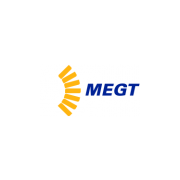- enhancing public health intelligence for early detection and risk assessment of health events
- strengthening public health surveillance and epidemiology based on the IDSR framework;
- modernizing information management systems and data analytics.
- Under the supervision of the HIR Programme Manager and overall coordination of the Regional Emergency Director, the Detection, Verification, and Risk Assessment Technical Officer performs routine activities for early detection of threats arising from epidemic and pandemic prone diseases, conducts rapid risk assessments of acute public health events, keeps track of acute public health events reported by Member States, and documents the response to those public health events and other emergencies.
- This position involves working in close collaboration with the WHE Programme, WHO HQ, Regional and Country Offices and with a broad range of partners, to provide technical expertise and promote information sharing. Within the framework of the delegated authority,
- Conduct routine activities for early detection of acute public health events, including but not limited to event-based surveillance; indicator-based surveillance; verification and risk assessment.
- Monitoring, and information-sharing on events that may constitute a public health emergency of international concern.
- Develop and/or maintain a database of historical events reported in the region.
- Organize and manage of data and information required for evidence-driven risk assessment.
- Develop and/or update the standard operating procedures and tools for epidemic intelligence.
- Perform data analysis to assist in the development of briefing documents and materials, situation analyses, and multilevels risk assessments.
- Support further development and maintenance of the WHO Event Management system (EMS) and Event Information System (EIS) and other event-based surveillance systems.
- Support the development and implementation of the Epidemic Intelligence from Open Sources (EIOS) platform.
- Monitoring and evaluation of the performance of epidemic intelligence tools and processes.
- Support the development of critical information products including RRA outputs; reports on best practices and lessons learned on the implementation of event-based surveillance and indicator-based surveillance in the region.
- Contribute to the development of training materials and capacity building in the areas of early detection and response to acute public health events.
- Participate in emergency epidemiological field missions as required.
- Perform any other related responsibilities as assigned by the Program Area Manager, including backstopping for others as required.
- A university degree in epidemiology, public health, or related field
- Master's level qualifications in public health, epidemiology, infectious diseases, or emergency/disaster management.
- A minimum of 2 years experience with successful track record in epidemiology, surveillance and/or control of acute public health events; epidemic surveillance at the national and/or international levels during epidemics or public health crisis at the national and international levels.
- Experience in WHO and/or the UN System in the areas of outbreak preparedness and response;
- Field experience in public health programmes or emergency response programmes in developing countries;
- Experience in inter-agency collaboration or in WHO, UN, UN Agencies, or other international organizations.
- Sound strategic and tactical thinking with ability to formulate clear comprehensive policies, strategies and plans.
- Superior organizational skills with ability to multi-task and produce results under pressure.
- Excellent interpersonal with proven ability to communicate in a clear and effective way, with tact, diplomacy and courtesy.
- Authoritative and comprehensive knowledge of the theory, principles, methods and techniques in international emergency risk management and humanitarian response, with a broad-based understanding of its growing complexity including knowledge of the workings of relevant international policy-setting bodies.
- Expert knowledge of English
Detection, Verification, and Risk Assessment Officer Cosultant - Nairobi, Kenya - World Health Organization

Description
Job Description
Description
–>
The mission of WHO's Emergency Preparedness and Response (EPR) Programme (WHE) is to build the capacity of Member States to manage health emergency risks and, when national capacities are overwhelmed, to lead and coordinate the international health response to contain outbreaks and to provide effective relief and recovery to affected populations.
The Health Emergency Information and Risk Assessment (HIR) Programme area of the EPR focuses on three major streams of work:
Deliverables:
the incumbent is assigned all or part of the following duties:
Qualifications, experience, skills and languages:
Educational Qualifications:
Essential:
Desirable:
Experience:
Essential:
Desirable:
Skills/Knowledge:
Languages and level required:
Essential:
Source:
Recommend your friend
–>
the incumbent is assigned all or part of the following duties:
To help us track our recruitment effort, please indicate in your cover/motivation letter where ) you saw this internship posting.
